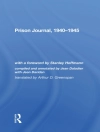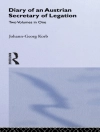Poetics Aristotle – Aristotle’s Poetics (Greek: Peri poietikês; Latin: De Poetica; c. 335 BC) is the earliest surviving work of dramatic theory and first extant philosophical treatise to focus on literary theory. In this text Aristotle offers an account of , which refers to poetry or more literally ‘the poetic art, ‘ deriving from the term for ‘poet; author; maker, ‘ . Aristotle divides the art of poetry into verse drama (to include comedy, tragedy, and the satyr play), lyric poetry, and epic. The genres all share the function of mimesis, or imitation of life, but differ in three ways that Aristotle describes: Differences in music rhythm, harmony, meter and melody. Difference of goodness in the characters. Difference in how the narrative is presented: telling a story or acting it out. The analysis of tragedy in the Poetics constitutes the core of the discussion. Although the text is universally acknowledged in the Western critical tradition, ‘almost every detail about his seminal work has aroused divergent opinions’. The work was lost to the Western world for a long time. It was available in the Middle Ages and early Renaissance only through a Latin translation of an Arabic version written by Averroes.
Про автора
Aristotle (384322 B.C.) numbers among the greatest philosophers of all time. Judged solely in terms of his philosophical influence, only Plato is his peer: Aristotle’s works shaped centuries of philosophy from Late Antiquity through the Renaissance, and even today continue to be studied with keen, non-antiquarian interest. A prodigious researcher and writer, Aristotle left a great body of work, perhaps numbering as many as two-hundred treatises, from which approximately thirty-one survive. His extant writings span a wide range of disciplines, from logic, metaphysics and philosophy of mind, through ethics, political theory, aesthetics and rhetoric, and into such primarily non-philosophical fields as empirical biology, where he excelled at detailed plant and animal observation and taxonomy. In all these areas, Aristotle’s theories have provided illumination, met with resistance, sparked debate, and generally stimulated the sustained interest of an abiding readership.Because of its wide range and its remoteness in time, Aristotle’s philosophy defies easy encapsulation. The long history of interpretation and appropriation of Aristotelian texts and themesspanning over two millennia and comprising philosophers working within a variety of religious and secular traditionshas rendered even basic points of interpretation controversial. The set of entries on Aristotle in this site addresses this situation by proceeding in three tiers. First, the present, general entry offers a brief account of Aristotle’s life and characterizes his central philosophical commitments, highlighting his most distinctive methods and most influential achievements. Second are General Topics which offer detailed introductions to the main areas of Aristotle’s philosophical activity. Finally, there follow Special Topics which investigate in greater detail more narrowly focused issues, especially those of central concern in recent Aristotelian scholarship.












